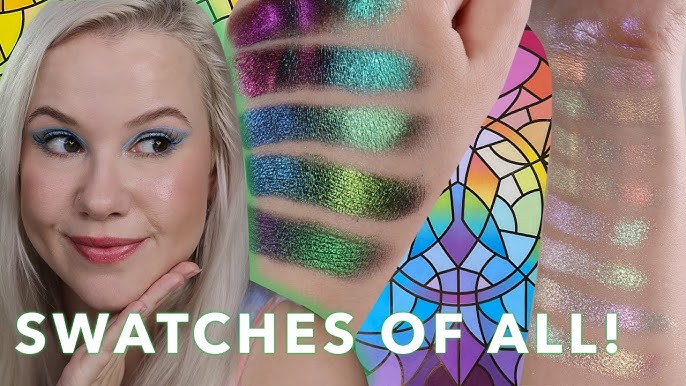Multichrome eyeshadows are the crown jewels of any makeup collection, and Clionadh's Stained Glass Collection represents the pinnacle of this innovative cosmetic technology. These mesmerizing pigments shift colors depending on the angle and lighting, creating dimensional looks that are truly captivating.
However, applying multichrome eyeshadows requires a slightly different approach than traditional shadows. With the right techniques, you can maximize their color-shift properties and ensure they stay vibrant all day.
Preparing Your Canvas
The key to making multichrome eyeshadows truly pop lies in the preparation. Unlike conventional eyeshadows, multichromes need a solid, even base to adhere to and show their true colors.
Primer is Essential
Always start with an eyeshadow primer. This creates a sticky base that helps the shadow adhere better and prevents creasing. For the most intense color payoff, choose a primer with a slightly tacky texture rather than a completely smooth one.
Pro Tip
For an even more intense color effect, apply a thin layer of glitter glue over your primer before applying multichrome shadows. This creates an exceptionally sticky base that maximizes pigment adhesion.
Base Shades Matter
Applying a base shade similar to your multichrome's dominant color can enhance its effect. For example:
- Use a black base for jewel-toned multichromes to deepen the effect
- Apply a white or light-colored base for pastel multichromes to brighten them
- Try a colored base that matches one of the shift colors to intensify that particular hue
Application Techniques
How you apply multichrome eyeshadows significantly affects their final appearance. Different techniques yield different results, so experiment to find what works best for each specific shade.
Finger Application
For the most intense color payoff with minimal fallout, use your finger. The natural warmth of your skin helps the shadow adhere better, and you can pack on the pigment precisely where you want it.
Brush Application
When using brushes, opt for flat, dense synthetic brushes rather than fluffy natural hair brushes. Synthetic brushes allow for more precise placement and better pigment packing. For detailed work, a small flat definer brush works wonders.
"The secret to mastering multichromes is understanding that they're not just eyeshadows—they're light-catching particles that need the right base and application method to truly shine."
Wet vs. Dry Application
Applying multichrome shadows wet intensifies the color but can sometimes diminish the shift effect. For the best of both worlds, apply dry first to establish the shift, then add a touch of wet application precisely where you want the most intensity.
Layering Multichromes
One of the most exciting aspects of multichrome eyeshadows is their layering potential. By strategically layering different shades, you can create custom colors and effects that are uniquely yours.
Complementary Layering
Layer multichromes with complementary shift colors to create dimension. For example, layering a blue-purple shift over a red-gold shift creates a mesmerizing effect where different colors appear depending on the angle and lighting.
Gradient Effects
Create stunning gradient looks by applying different multichrome shades to different parts of your lid. Blend where they meet to create a seamless transition that shifts colors across your eyelid.
Maximizing Longevity
To ensure your multichrome masterpiece lasts all day (and night!), follow these tips:
- Always start with primer
- Set your primer with a translucent powder if you prefer a smoother blending surface
- Apply shadows in thin layers, building up intensity gradually
- Use a setting spray after application to minimize fallout and extend wear
- Avoid touching or rubbing your eyes throughout the day
Troubleshooting Common Issues
Fallout
Multichrome shadows can have fallout due to their unique composition. To minimize this, tap off excess product from your brush before application, and do your eye makeup before foundation so you can clean up any fallout easily.
Patchiness
If your application looks patchy, you might not be using enough primer, or you might be blending too much. Multichromes perform best when applied with a patting motion rather than a swiping motion.
Color Shift Not Visible
If the color shift isn't showing up as expected, check your lighting. Multichromes need direct light to show their full spectrum of colors. Additionally, try applying over a darker base to intensify the shift effect.
Final Tip
Experiment fearlessly! Multichrome eyeshadows are incredibly versatile. Try them as eyeliner (applied with a damp brush), mixed with mixing medium for a custom liquid shadow, or even on other parts of your face as highlighters for special occasions.
With practice and these techniques, you'll be able to create stunning eye looks that showcase the full beauty of Clionadh's Stained Glass Collection. Remember that makeup is an art, and there are no real rules—only guidelines to help you create what looks and feels beautiful to you.

